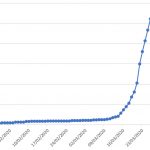The Special Session “Life Science and its Implications for Society” took place during IEEE International Symposium on Technology and Society (ISTAS) 2021 on… Read More



The Special Session “Life Science and its Implications for Society” took place during IEEE International Symposium on Technology and Society (ISTAS) 2021 on… Read More

As the COVID-19 pandemic shows, crises can catalyze socio-technical changes at a speed and scale otherwise thought impossible. Crises expose the fragility and resilience of our sociotechnical systems – from healthcare to financial markets, internet connectivity, and local communities.

Reflective thinking allows humans to examine the past with intentionality, learn from what happened, and adapt accordingly. We explore thoughts, feelings, and actions, mine out insights, and enhance awareness.

The fiercest public health crisis in a century has elicited cooperative courage and sacrifice across the globe. At the same time, the COVID-19 pandemic is producing severe social, economic, political, and ethical divides, within and between nations. It is reshaping how we engage with each other and how we see the world around us. It urges us to think more deeply on many challenging issues—some of which can perhaps offer opportunities if we handle them well. The transcripts that follow speak to the potency and promise of dialogue. They record two in a continuing series of “COVID-19 In Conversations” hosted by Oxford Prospects and Global Development Institute.

Crises expose the fragility and resilience of our sociotechnical systems – from healthcare to financial markets, internet connectivity, and local communities. Submissions are especially invited on but not limited to the following topics intersecting with COVID-19 and crises:

With techno-feudalism, what is paid and permitted in a digital space is decided by asymmetric power, not mutual consent. Political approval for funding priorities, education programs and regulation all favor Big Tech.